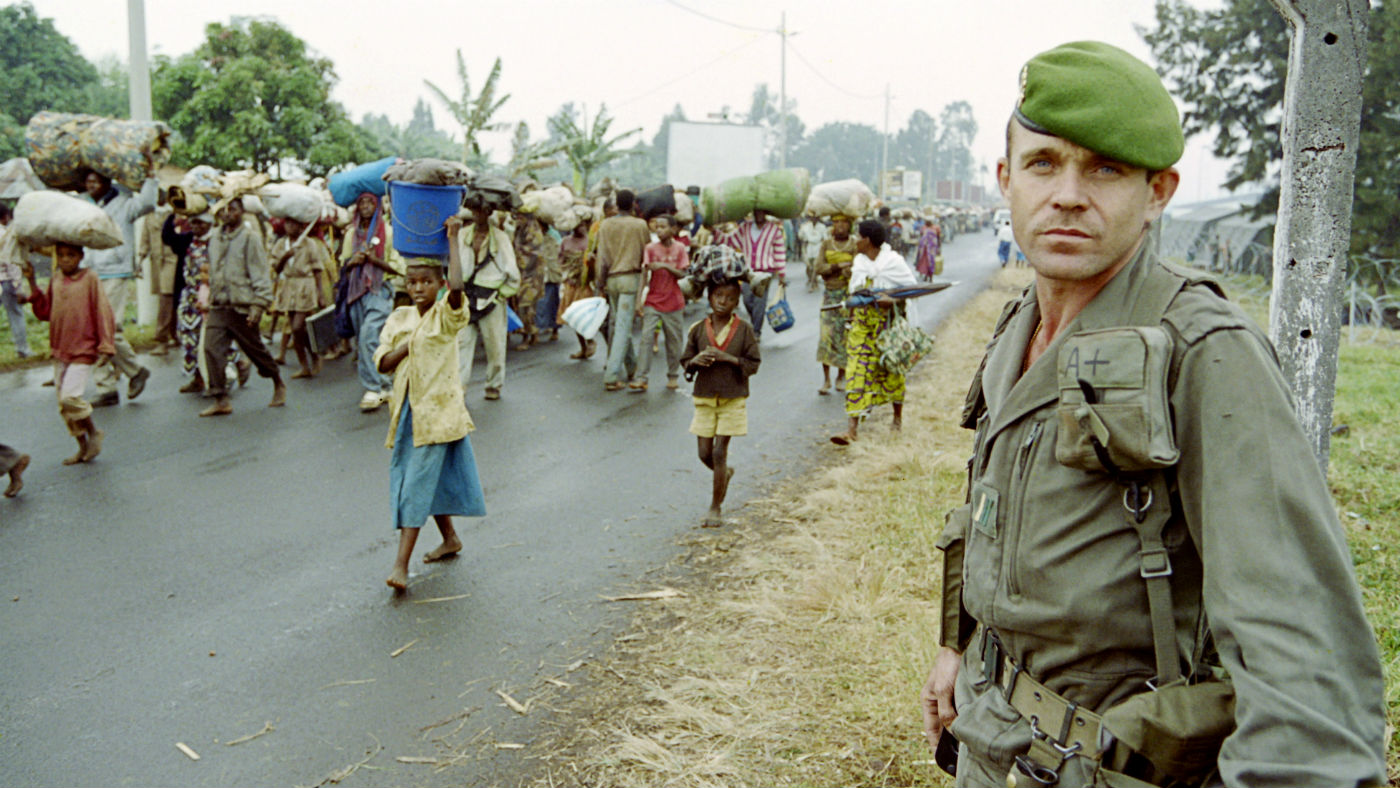France ‘complicit’ in Rwandan genocide
Independent report concludes French officials obstructed justice in subsequent investigations

A free daily email with the biggest news stories of the day – and the best features from TheWeek.com
You are now subscribed
Your newsletter sign-up was successful
French officials were complicit in the Rwandan genocide and obstructed justice in subsequent investigations, according to a new report commissioned by the Rwandan government.
Commissioned by the Rwandan government and written by the American law firm Cunningham Levy Muse, the report is part of an official investigation into France’s role in the genocide, which claimed the lives of more than 800,000 Tutsis.
Drawing on wide-ranging sources including diplomatic cables and witness testimonies, the 52-page document make a series of allegations.
The Week
Escape your echo chamber. Get the facts behind the news, plus analysis from multiple perspectives.

Sign up for The Week's Free Newsletters
From our morning news briefing to a weekly Good News Newsletter, get the best of The Week delivered directly to your inbox.
From our morning news briefing to a weekly Good News Newsletter, get the best of The Week delivered directly to your inbox.
Among the most serious highlighted by CNN are that: “French officials supplied weapons to government forces and militias implicated in massacres of Tutsis, despite having knowledge of these atrocities; that French officials provided support and shelter for Rwanda’s interim government, whose leaders were subsequently convicted of genocide charges; and that the French government obstructed justice after the genocide by failing to release vital documents, and failing to extradite or prosecute suspected war criminals living in France.”
It is not the first time the Rwandan government has accused France of complicity in the mass-slaughter and relations between the nations have been strained since the genocide in 1994. France currently has no ambassador in Kigali and Rwanda has recently withdrawn its envoy from Paris.
The report says a “complete investigation into the full extent of the knowledge, conduct and complicity of French officials is warranted” and calls for French archives to be opened to shed light on the actions of the French government at the time.
France’s Constitutional Court recently ruled that any classified documents should remain sealed.
A free daily email with the biggest news stories of the day – and the best features from TheWeek.com
-
 Rubio boosts Orbán ahead of Hungary election
Rubio boosts Orbán ahead of Hungary electionSpeed Read Far-right nationalist Prime Minister Viktor Orbán is facing a tough re-election fight after many years in power
-
 Hyatt chair joins growing list of Epstein files losers
Hyatt chair joins growing list of Epstein files losersSpeed Read Thomas Pritzker stepped down as executive chair of the Hyatt Hotels Corporation over his ties with Jeffrey Epstein and Ghislaine Maxwell
-
 Political cartoons for February 17
Political cartoons for February 17Cartoons Tuesday’s political cartoons include a refreshing spritz of Pam, winter events, and more
-
 Greenland’s capital becomes ground zero for the country’s diplomatic straits
Greenland’s capital becomes ground zero for the country’s diplomatic straitsIN THE SPOTLIGHT A flurry of new consular activity in Nuuk shows how important Greenland has become to Europeans’ anxiety about American imperialism
-
 Epstein files topple law CEO, roil UK government
Epstein files topple law CEO, roil UK governmentSpeed Read Peter Mandelson, Britain’s former ambassador to the US, is caught up in the scandal
-
 Iran and US prepare to meet after skirmishes
Iran and US prepare to meet after skirmishesSpeed Read The incident comes amid heightened tensions in the Middle East
-
 Israel retrieves final hostage’s body from Gaza
Israel retrieves final hostage’s body from GazaSpeed Read The 24-year-old police officer was killed during the initial Hamas attack
-
 China’s Xi targets top general in growing purge
China’s Xi targets top general in growing purgeSpeed Read Zhang Youxia is being investigated over ‘grave violations’ of the law
-
 Panama and Canada are negotiating over a crucial copper mine
Panama and Canada are negotiating over a crucial copper mineIn the Spotlight Panama is set to make a final decision on the mine this summer
-
 Why Greenland’s natural resources are nearly impossible to mine
Why Greenland’s natural resources are nearly impossible to mineThe Explainer The country’s natural landscape makes the task extremely difficult
-
 Iran cuts internet as protests escalate
Iran cuts internet as protests escalateSpeed Reada Government buildings across the country have been set on fire